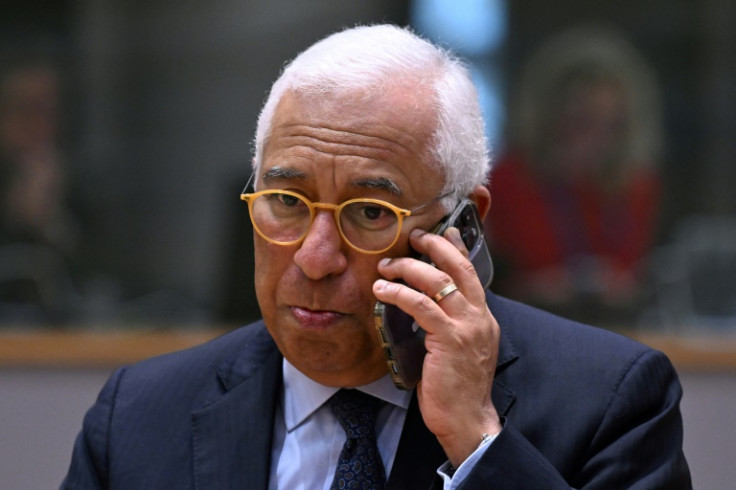
The corruption investigation that sparked ex-Portuguese premier Antonio Costa's resignation last year risks collapsing after a court said there had been no indication of a crime being committed.
The then-Socialist Party leader suddenly quit on November 7, ending almost nine years in office, after becoming embroiled in a probe into his administration's handling of energy-related contracts.
But "the elements do not in their own right constitute criminal nature," the Lisbon Court of Appeal said in a statement Wednesday.
"None of the facts reported indicate that crimes have been committed," it said, criticising the investigation that began in November.
Costa, rumoured as a possible successor to Charles Michel as European Council president, was accused of having participated in drawing up a land planning law benefiting a company which planned to build a mega-data centre near the southern port of Sines.
The Socialist Party's secretary-general Pedro Nuno Santos said the public prosecutor owed "explanations to the Portuguese people" and that democracy was at risk.
When the court states that "there are no criminal clues", this is "a very harsh expression about an investigation that has had very serious political consequences for the country," Socialist MP Mariana Vieira da Silva said on Thursday.
Costa had still not been heard by the courts, she told Radio 1.
Leader of the far-right Chega party, Andre Ventura, denounced the "pressure" on the judiciary to "quickly clear" Costa "because he has to go to the European Council".
On Wednesday, Portuguese President Marcelo Rebelo de Sousa said it was becoming more likely that a "Portuguese will sit on the European Council this autumn in Brussels".
A spokeswoman for the public prosecutor's office told AFP on Thursday that it would continue its investigations despite the Lisbon Court of Appeal's statement.
In November, the public prosecutor's office raided Costa's official residence, while his chief of staff and a business lawyer close to the former prime minister were taken into custody.
The prosecutor's office said in a statement that Costa's name had been mentioned by some suspects and that as a result proceedings against him had been opened in the Supreme Court of Justice.
Costa announced his resignation the same day and said he would not stand for re-election. His Socialist Party then narrowly lost the ensuing elections in March.







